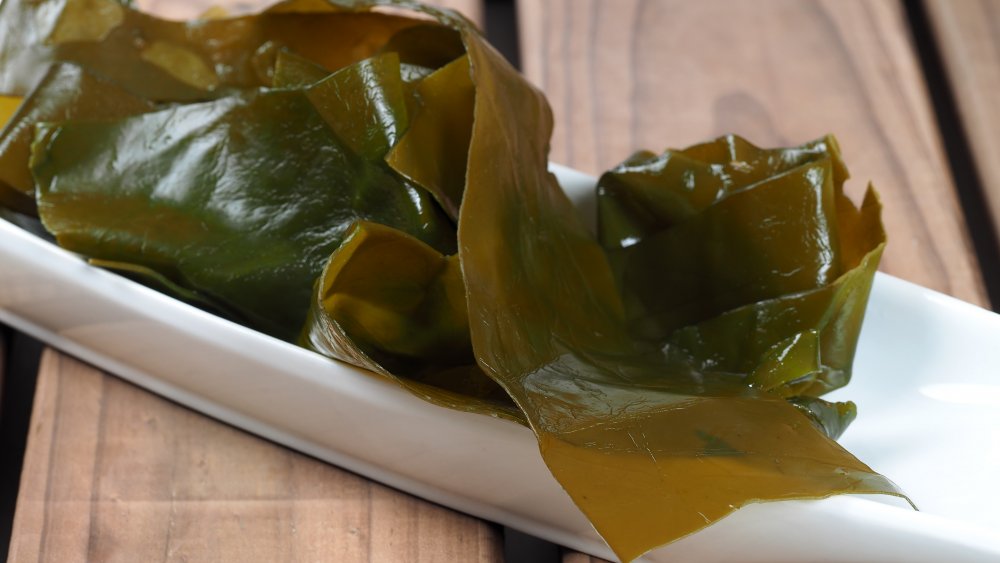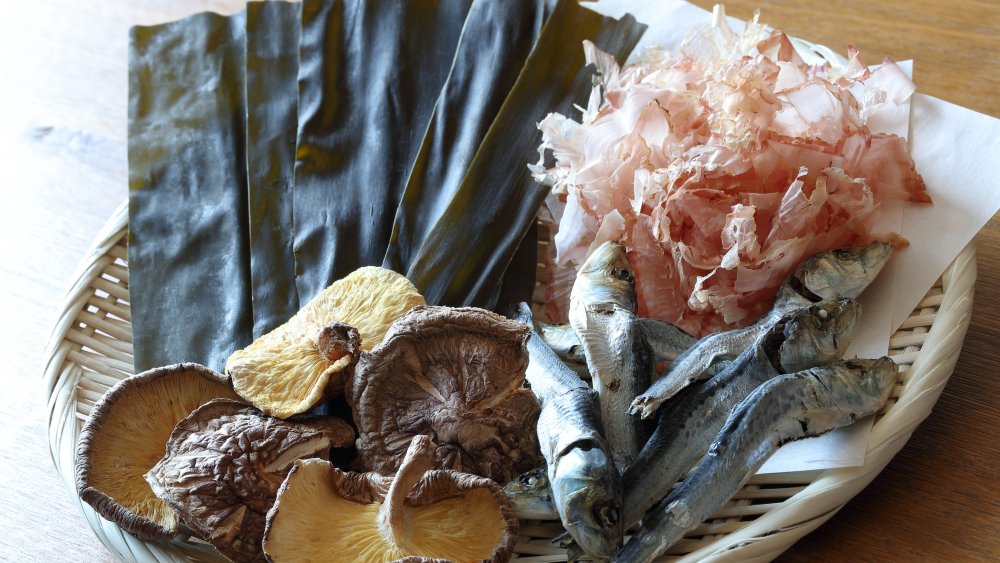The Reason You Should Be Adding Kelp To Your Diet
Every few months there seems to be a trendy new health food, but a food you don't hear much about often — yet has a lot of health benefits — is kelp. For those unfamiliar with it, kelp is actually a type of seaweed. If you eat sushi, it was likely the green plant holding your sushi rolls together. Kelp grows in shallow salt water, and can differ in color and flavor, but the water it grows in is usually filled with nutrients (via Healthline).
There are many health benefits to eating kelp. It contains vitamins, minerals, and enzymes, and it's also considered a superfood because of its high mineral content, particularly iodine, which is needed for optimal thyroid function and metabolism. Among the vitamins and minerals found in kelp are iron, magnesium, calcium, manganese, copper, zinc, riboflavin, niacin, thiamin, and vitamins A, B-12, B-6, and C.
Kelp also supports bone health due to its calcium content. It contains more calcium than many vegetables, even high calcium vegetables like kale and collard greens (via Mind Body Green).
Kelp can also work to help your body fight disease. Inflammation and stress tend to be high risk factors for chronic diseases, and kelp is naturally high in antioxidants such as carotenoids, flavonoids, and alkaloids, all of which help to fight free radicals, which can cause disease. Vitamin C, manganese, and zinc also work to help fight oxidative stress and help cardiovascular health.
Ways to eat kelp
Kelp has also been found to help slow the spread of colon and breast cancer in recent studies. Omega-3 fatty acids and fiber can also be found in kelp (via Eat This, Not That).
Kelp is actually a versatile ingredient. It can be eaten raw, cooked, powdered, or used as a supplement. The easiest way to add kelp to your diet is to buy dried, organic kelp and add it to soups. Dried kelp flakes also work as a seasoning for vegetables or salads.
Kelp can also be found in processed food, where it will be listed as sodium alginate, which is a compound produced by kelp. Sodium alginate is used as a thickener in foods such as ice cream or salad dressing.
A note of caution, though — while kelp has many benefits, it should be avoided in concentrated forms, as it can cause an iodine overdose and over stimulate the thyroid, causing health problems.
Another benefit of kelp is its positive effect on the environment. Kelp helps oceans by removing excessive phosphorous, nitrogen, and carbon dioxide. Kelp forests provide food and shelter for marine life on the Pacific Coast, where it primarily grows. Adding kelp to your diet helps both your body and the planet.

